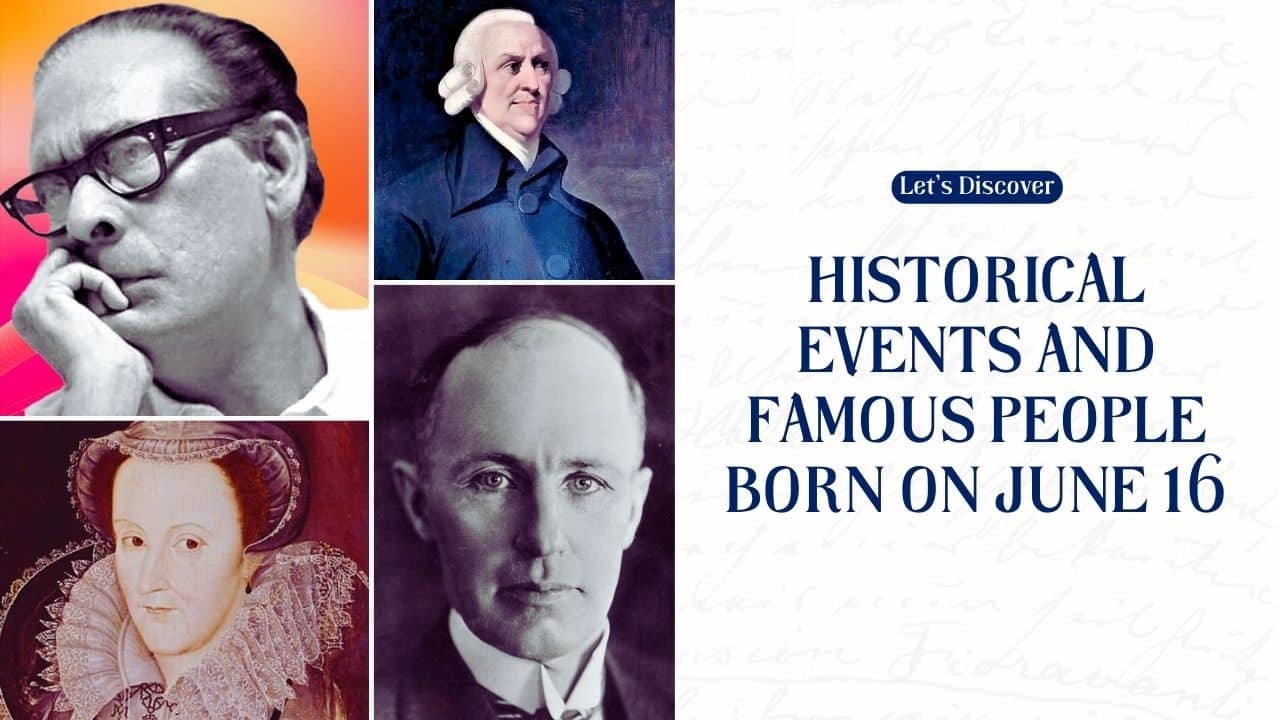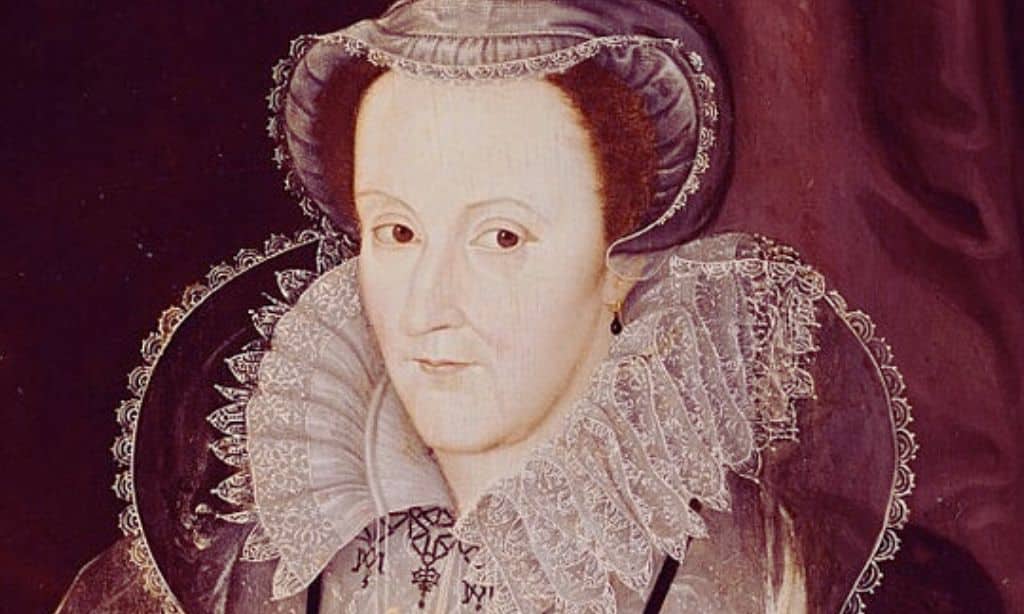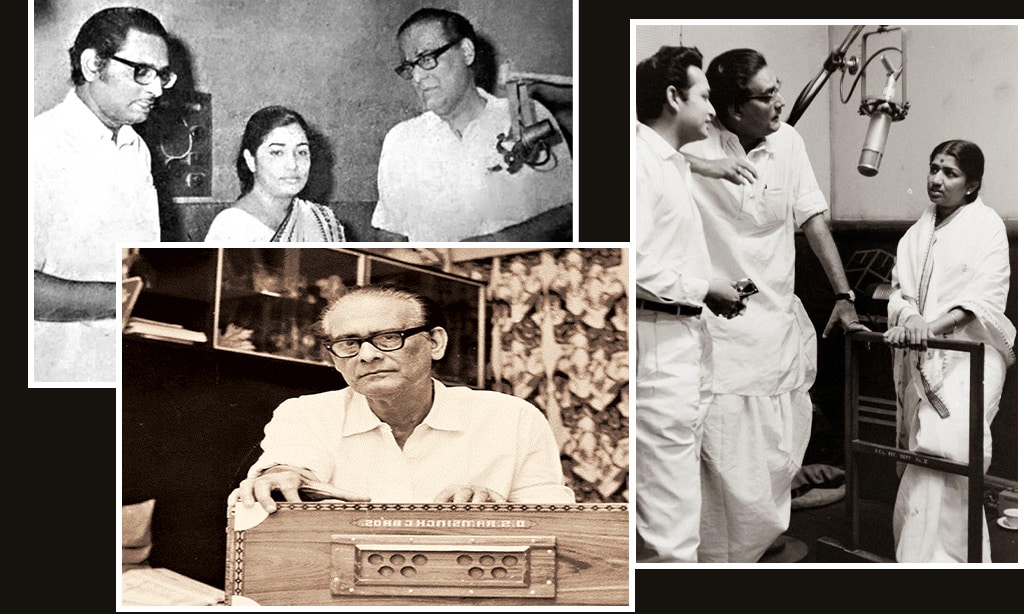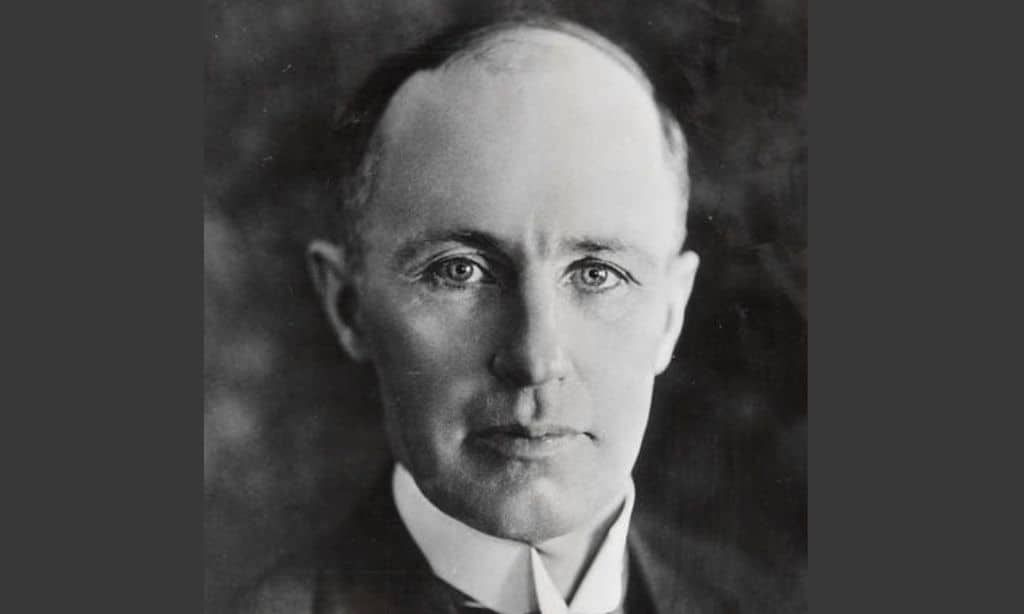June 16 is a day filled with interesting historical events and the birthdays of some very famous people. In this article, we will explore what happened on this day in history and learn about the lives of the well-known individuals born on June 16.
Historical Events on June 16
Battle of Stoke Field (1487)
The Battle of Stoke Field was a very important fight that took place on June 16, 1487, in Nottinghamshire, England. It was part of a long series of wars called the Wars of the Roses, which were fought between two groups of the royal family – the House of Lancaster and the House of York. In this battle, the army of King Henry VII, who was from the House of Lancaster, defeated the Yorkists led by John de la Pole and Lord Lovell. This was the last big battle of the Wars of the Roses, and it helped Henry VII secure his position as the king of England.
Imprisonment of Mary, Queen of Scots (1567)
On June 16, 1567, Mary, Queen of Scots, was imprisoned in Lochleven Castle in Scotland. Mary had been the queen of Scotland since she was a baby, but she faced many challenges and conflicts during her rule. Some people accused her of being involved in the murder of her husband, Lord Darnley. As a result, she was forced to give up her throne and was held as a prisoner in the castle. This event was a major turning point in Scottish history and had a big impact on Mary’s life.
Great Siege of Gibraltar (1779)
The Great Siege of Gibraltar began on June 16, 1779, when Spain declared war on Great Britain. Spain joined forces with France and the United States, who were already fighting against Britain in the American Revolutionary War. Gibraltar was an important military base for the British, so the Spanish and French armies tried to capture it. The siege lasted for almost four years, but the British managed to defend Gibraltar and keep control of it. The Great Siege of Gibraltar was one of the longest sieges in history.
Capture of Stony Point (1779)
On the same day that the Great Siege of Gibraltar began, another important battle took place in North America. On July 16, 1779, American General Anthony Wayne led his troops to capture Stony Point, a British fort in New York. This was a significant victory for the Americans in the Revolutionary War, as they were able to take over the fort and force the British to surrender. General Wayne’s success at Stony Point helped boost the morale of the American army.
Battle of Ligny (1815)
The Battle of Ligny was fought on June 16, 1815, during the Napoleonic Wars. Napoleon Bonaparte, the famous French military leader, led his army to victory against the Prussian forces in this battle. It was Napoleon’s last major victory before his final defeat at the Battle of Waterloo a few days later. The Battle of Ligny was an important part of the Napoleonic Wars, which had a significant impact on European history.
Famous Birthdays on June 16
Hemanta Mukhopadhyay (1920-1989)
| Born | June 16, 1920 |
|---|---|
| Died | September 26, 1989 |
| Occupation | Music director, playback singer |
| Nationality | Indian |
| Notable Works | Songs in Bengali, Hindi, and other Indian languages |
Hemanta Mukhopadhyay, also known as Hemant Kumar and Hemanta Mukherjee, was a famous Indian musician and singer. He was born on June 16, 1920, in Varanasi, India. Hemanta showed a great love for music from a young age and received training in classical music. He started his career as a singer in the 1940s and went on to become one of the most popular and respected musicians in India. Hemanta sang songs in many different languages, including Bengali, Hindi, Marathi, and Gujarati. He was known for his beautiful voice and his ability to express emotions through his singing. Hemanta also worked as a music director in the Indian film industry and composed music for many popular movies. He won several awards for his contributions to Indian music and is still remembered as one of the greatest singers of his time.
Adam Smith (1723-1790)
| Born | June 16, 1723 |
|---|---|
| Died | July 17, 1790 |
| Occupation | Economist, philosopher |
| Nationality | Scottish |
| Notable Works | “The Wealth of Nations”, “The Theory of Moral Sentiments” |
Adam Smith was a Scottish economist and philosopher who is known as the “father of modern economics”. He was born on June 16, 1723, in Kirkcaldy, Scotland. Smith studied at the University of Glasgow and the University of Oxford before becoming a professor of moral philosophy at the University of Glasgow. He is best known for his book “The Wealth of Nations”, which was published in 1776. In this book, Smith argued that free markets and competition could lead to economic growth and prosperity. He also introduced the concept of the “invisible hand”, which refers to the idea that individuals acting in their own self-interest can benefit society as a whole. Smith’s ideas had a significant impact on economic thought and helped shape the development of modern capitalism.
Geronimo (1829-1909)
| Born | June 16, 1829 |
|---|---|
| Died | February 17, 1909 |
| Occupation | Apache leader |
| Nationality | Native American |
| Notable Actions | Resistance against Mexican and American forces |
Geronimo was a famous Native American leader of the Apache tribe. He was born on June 16, 1829, in what is now Arizona. Geronimo grew up learning the traditions and ways of the Apache people. When Mexican soldiers attacked his village and killed his mother, wife, and children in 1858, Geronimo became a fierce warrior and leader. He led his people in resistance against both Mexican and American forces who were trying to take over Apache lands. Geronimo was known for his bravery and his ability to outsmart his enemies. He surrendered to American forces in 1886 and spent the rest of his life as a prisoner of war. Today, Geronimo is remembered as a symbol of Native American resistance and a hero to many people.
Arthur Meighen (1874-1960)
| Born | June 16, 1874 |
|---|---|
| Died | August 5, 1960 |
| Occupation | Politician, Prime Minister of Canada |
| Nationality | Canadian |
| Notable Actions | Served as the 9th Prime Minister of Canada |
Arthur Meighen was a Canadian politician who served as the 9th Prime Minister of Canada. He was born on June 16, 1874, in Anderson, Ontario. Meighen studied law and worked as a lawyer before entering politics. He was first elected to the Canadian House of Commons in 1908 and served in various government positions before becoming Prime Minister in 1920. As Prime Minister, Meighen faced many challenges, including a recession and political instability. He is remembered for his efforts to reduce government spending and his support for Canadian nationalism. Meighen served as Prime Minister twice, once from 1920 to 1921 and again briefly in 1926.
Mohammad Mosaddegh (1882-1967)
| Born | June 16, 1882 |
|---|---|
| Died | March 5, 1967 |
| Occupation | Politician, Prime Minister of Iran |
| Nationality | Iranian |
| Notable Actions | Nationalized the Iranian oil industry |
Mohammad Mosaddegh was an Iranian politician who served as the Prime Minister of Iran from 1951 to 1953. He was born on June 16, 1882, in Tehran, Iran. Mosaddegh was a strong believer in democracy and nationalism. As Prime Minister, he worked to reduce foreign influence in Iran and to nationalize the Iranian oil industry, which had been controlled by the British. This decision made him very popular among the Iranian people but also brought him into conflict with the British government and the American CIA. In 1953, Mosaddegh was overthrown in a coup organized by the CIA and British intelligence. He was imprisoned and spent the rest of his life under house arrest. Today, Mosaddegh is remembered as a hero in Iran and a symbol of resistance against foreign interference.
Takeaways
June 16 is a day that has seen many significant historical events and the births of several remarkable individuals. From the Battle of Stoke Field in 1487 to the coup against Mohammad Mosaddegh in 1953, this date has played a role in shaping the course of history. The famous people born on June 16, including Hemanta Mukhopadhyay, Adam Smith, Geronimo, Arthur Meighen, and Mohammad Mosaddegh, have each made their own unique contributions to the world through their work and actions. By learning about these events and individuals, we can gain a deeper understanding of the past and appreciate the impact that a single day can have on the course of human history.
References:
- “Battle of Stoke Field.” Encyclopedia Britannica. https://www.britannica.com/event/Battle-of-Stoke-Field
- “Mary, Queen of Scots.” History. https://www.history.com/topics/british-history/mary-queen-of-scots
- “Great Siege of Gibraltar.” The History Press. https://www.thehistorypress.co.uk/articles/the-great-siege-of-gibraltar/
- “Capture of Stony Point.” George Washington’s Mount Vernon. https://www.mountvernon.org/library/digitalhistory/digital-encyclopedia/article/capture-of-stony-point/
- “Battle of Ligny.” Napoleon.org. https://www.napoleon.org/en/history-of-the-two-empires/articles/battle-of-ligny-16-june-1815/
- “Hemanta Kumar Mukhopadhyay.” Encyclopaedia of Hindi Cinema. https://archive.org/details/encyclopaediaofh0000unse_e1g6/page/234/mode/2up
- “Adam Smith.” Stanford Encyclopedia of Philosophy. https://plato.stanford.edu/entries/smith-adam/
- “Geronimo.” National Park Service. https://www.nps.gov/people/geronimo.htm
- “Arthur Meighen.” Library and Archives Canada. https://www.bac-lac.gc.ca/eng/discover/politics-government/prime-ministers/pmportrait/Pages/meighen-arthur.aspx
- “Mohammad Mosaddegh.” Encyclopedia Britannica. https://www.britannica.com/biography/Mohammad-Mosaddegh






































